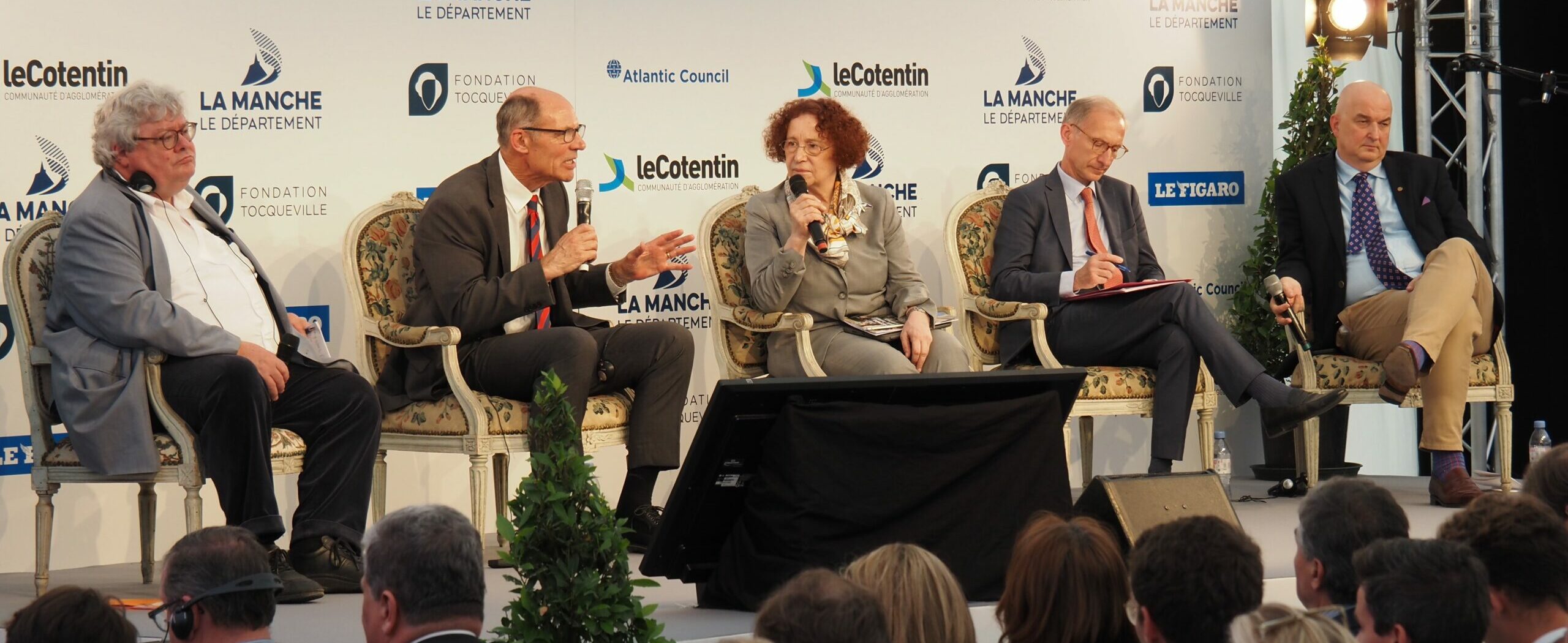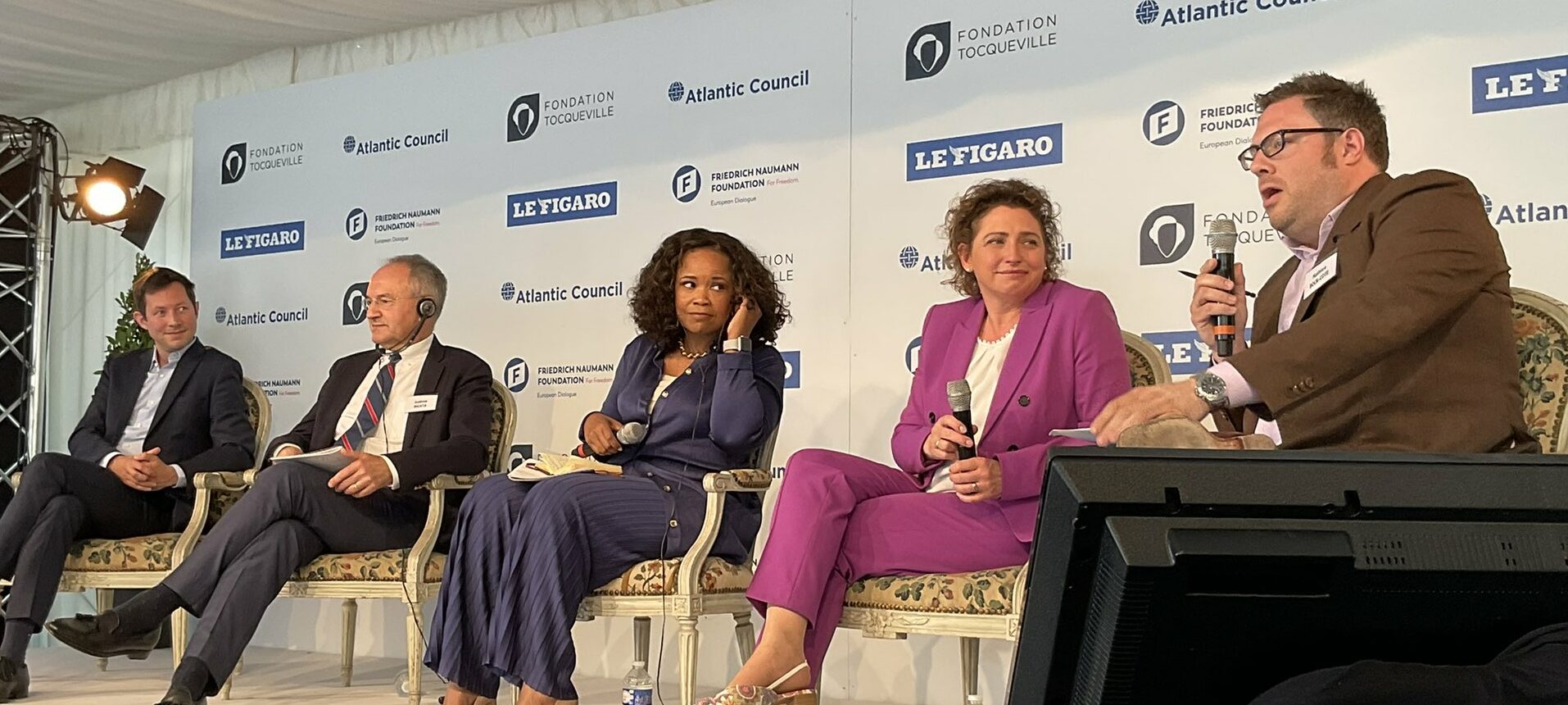© Fondation Tocqueville 2022 – All rights reserved.
- HOME
- ABOUT US
- PROGRAMS
- NEWS
- CONTACT
La Filature Bâtiment 5
32 Rue du Faubourg Poissonnière
75010 PARIS FRANCE
Co-founded by the Tocqueville Foundation and Le Figaro, The Tocqueville Conversations is an international conference held at the Château de Tocqueville, gathering 300 participants and speakers from around the world.
Cofondées par la Fondation Tocqueville et Le Figaro, Les Conversations Tocqueville sont une conférence internationale accueillant 300 participants et intervenants du monde entier au Château de Tocqueville.
The Tocqueville Conversations were born in response to the crisis facing Western democracies, the urgency to move beyond elite inertia, and the striking relevance of the thought of Alexis de Tocqueville, the great 19th-century liberal thinker. A keen observer of democracy in both America and Europe, Tocqueville analyzed with remarkable foresight the strengths and vulnerabilities of democratic systems. Held at his historic château in Normandy—where he wrote Democracy in America—these Conversations aim to inspire a transatlantic democratic renewal.
Les Conversations Tocqueville sont nées face à la crise des démocraties occidentales, à l’urgence de dépasser l’inertie des élites, et à l’actualité saisissante de la pensée d’Alexis de Tocqueville, grand penseur libéral du XIXe siècle. Observateur lucide de la démocratie en Amérique comme en Europe, Tocqueville a analysé avec une rare clairvoyance les forces et les fragilités des systèmes démocratiques. Organisées dans son château historique en Normandie – lieu même où il écrivit De la démocratie en Amérique – ces Conversations visent à inspirer un renouveau démocratique transatlantique.


The replay of the conferences is available on our Youtube channel by following this link for the English version and this one for the French version.



© Fondation Tocqueville 2022 – All rights reserved.
La Filature Bâtiment 5
32 Rue du Faubourg Poissonnière
75010 PARIS FRANCE
© Fondation Tocqueville 2022 – All rights reserved.